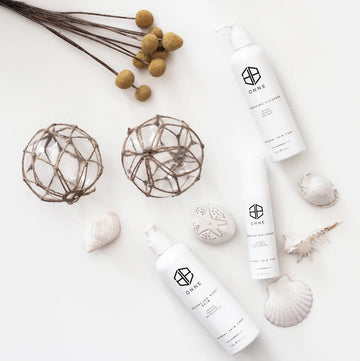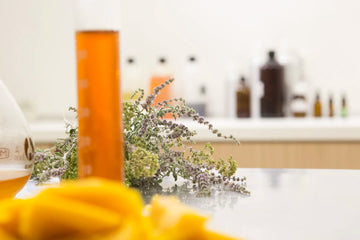As consumers become increasingly conscious of the ingredients in their skincare products, the demand for organic options has surged. The allure of natural tallow face cream and an emphasis on sustainable sourcing of ingredients makes it essential to understand what qualifies a skincare product as "organic." In this guide, we’ll explore the intricacies of organic skincare, including key ingredients, benefits, and how to differentiate between truly organic products and their conventional counterparts.
Defining Organic Skincare
When we talk about organic skincare, we refer to products made from ingredients that are grown without harmful chemicals, pesticides, and fertilizers. However, federal guidelines and certifications vary by region; therefore, it’s crucial to understand what to look for when assessing your skincare products.
Why Go Organic?
Choosing organic skincare is about more than just avoiding harmful chemicals. Here are some compelling reasons to consider:
- Health Benefits: Organic ingredients are less likely to cause skin irritation or allergic reactions.
- Sustainability: Organic farming practices support the environment by promoting biodiversity and reducing pollution.
- Transparency: Many organic brands prioritize transparency in sourcing, so you know exactly what you’re putting on your skin.
- Better for Animals: Organic products often come from cruelty-free sources, ensuring the animals are treated humanely.
Understanding Ingredient Labels
Reading ingredient labels is the key to determining the authenticity of your skincare products. Look for terms like “USDA Organic” or “Certified Organic,” which can provide some assurance of quality. Here’s what various labels might indicate:
Certified Organic
For a product to be classified as certified organic, it must contain at least 95% organic ingredients. These ingredients are grown without the use of synthetic pesticides or fertilizers and adhere to strict production methods.
Made with Organic Ingredients
Products with this label contain at least 70% organic ingredients but do not qualify for the certified organic label. While it’s still a step toward better skincare, these products might include non-organic components.
Key Ingredients in Organic Skincare
Now that we understand what it means for a product to be organic, let’s delve into some common ingredients that you’ll often find in organic skincare formulations.
Tallow: The Unsung Hero
Tallow has been making a comeback in the skincare world, especially with the rise of grass-fed tallow skincare. Derived from the fatty tissue of grass-fed cows, tallow is a nutrient-dense substance rich in fatty acids, vitamins A, D, E, and K. Here’s why tallow is gaining popularity:
- Biodiversity: Tallow is biodegradable and sustainable, coming from responsibly raised animals.
- Skin Compatibility: The lipid composition of tallow closely resembles that of human skin, which promotes better absorption and hydration.
- Antimicrobial Properties: Tallow can help protect the skin from bacteria, making it an effective moisturizer.
Incorporating tallow into your skincare regimen may lead to noticeable improvements, especially when using products like best tallow face cream or organic tallow moisturizer options. These products often showcase the benefits of tallow while highlighting their organic credentials.
Essential Oils
Natural essential oils are frequently utilized for their therapeutic properties and fragrant scents. Look for oils that offer skin-enhancing qualities. Popular options include:
- Lavender Oil: Offers soothing properties, making it excellent for sensitive skin.
- Tea Tree Oil: Known for its antibacterial properties, making it suitable for acne-prone skin.
- Jojoba Oil: Acts as a natural moisturizer and can help regulate oil production.
Plant-Based Extracts
Many organic skincare brands incorporate plant extracts for their antioxidant and anti-inflammatory benefits. Look for extracts like:
- Aloe Vera: Provides hydration and soothing effects.
- Green Tea: Rich in antioxidants, fighting free radicals and promoting youthful skin.
- Rosehip Oil: Known for its anti-aging properties, helping to reduce scars and fine lines.
The Benefits of Using Organic Skincare
Switching to organic skincare offers numerous advantages, not only for your skin but also for your overall health and the environment. Here are some benefits worth mentioning:
Minimized Risk of Irritation
Organic skincare products often use gentle, non-toxic ingredients, significantly reducing the chances of skin irritation. This is particularly beneficial for those with sensitive skin, as artificial chemicals and additives commonly found in conventional products can lead to reactions.
Enhanced Nutrient Absorption
Organic products are rich in nutrients, allowing for better absorption by the skin. Natural ingredients can penetrate deeply, providing long-lasting hydration and nourishment—qualities that are especially evident in products like natural tallow face cream.
Promotion of Environmental Sustainability
Choosing organic skincare means supporting sustainable farming practices and encouraging biodiversity. By opting for brands that prioritize eco-friendly sourcing, you contribute positively to the environment.
Spotting Faux Organic Products
Not every product claiming to be "organic" lives up to its promise. It’s essential to learn how to navigate misleading labels. Here’s what to consider:
Ingredient Origins
Make sure to research where the ingredients come from. Brands that lack transparency are often hiding potentially harmful sourcing methods.
Certification Labels
Check for official certification labels. Genuine organic products should have USDA certification or similar seals that denote their organic status.
Beware of Buzzwords
Terms like “natural” or “herbal” are not regulated and may not guarantee organic quality. Always cross-reference ingredient lists to verify the authenticity of claims.
Transform Your Skincare Routine
Transitioning to organic skincare doesn’t have to be an all-or-nothing approach. Here are some steps to make the change gradually:
- Start with One Product: Begin by replacing your current moisturizer with a premium organic tallow moisturizer.
- Read Labels: Educate yourself on ingredients, focusing on those that are natural and organic.
- Test and Evaluate: Give your skin time to adjust. It may take a few weeks of consistent use to see results.
The Path Forward
In a world where awareness surrounding the ingredients in our skincare continues to grow, making informed choices has never been more critical. Selecting organic products, especially those enriched with nourishing ingredients like tallow, will not only enhance your beauty regimen but also promote overall wellness and sustainability. Keep an eye out for those best tallow face cream options, and embark on your journey toward greater skin health with education, intent, and care. Every small change can lead to a more vibrant you!



